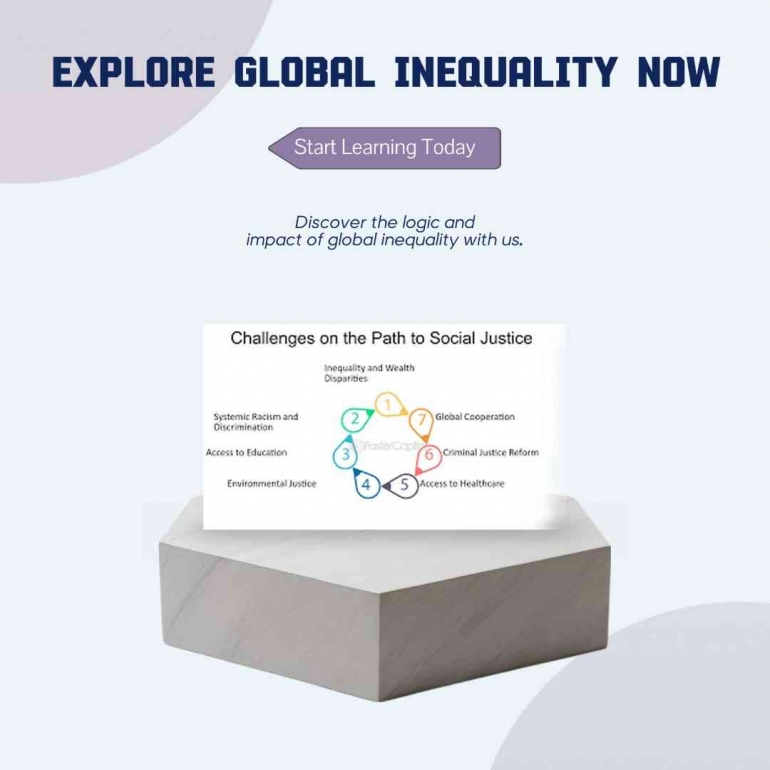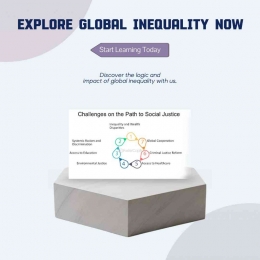Social and economic inequality, akin to a dense forest, beckons us to navigate its intricate pathways wisely. In this intellectual expedition, let's immerse ourselves in the richness of theories and ideas from economic wizards and philosophers, guiding us through dark corridors toward a deeper understanding.
Unveiling Piketty's Trail: Unearthing the Roots of Inequality
Thomas Piketty, like an economic archaeologist, excavates the ruins of inequality in his monumental work, "Capital in the Twenty-First Century" (2014). He leads us through the corridors of economic history, revealing that inequality surges when economic growth outpaces the income of the general populace. Applying analytical logic, we discover that progressive taxation can be a modern whip to narrow the economic gap.
Action: As economic ground crusaders, let's collectively support the transformation of more progressive tax policies.
Painting the Future with Nussbaum's Brush: Humanity in Development Policies
Step into the gallery of Martha Nussbaum's humanistic philosophy in "Creating Capabilities: The Human Development Approach" (2011). Like a delicate pencil artist, Nussbaum paints a vision of development policies that engage not only economic growth but also embrace human capabilities. Logic becomes the brush depicting a colorful panorama, where inclusive education and skill training carve brilliant patterns for every citizen.
Action: Let's jointly advocate for investments in inclusive education and skill training, helping each individual build their capabilities.
View from Stiglitz's Heights: Evaluation of International Initiatives
Ascend to the summit of Joseph Stiglitz's thoughts, the Nobel laureate, in "The Price of Inequality" (2012). Like a modern-day explorer, Stiglitz provides logical observations from soaring heights, highlighting the need for inclusive policies and fair distribution. His evaluative logic gives clues towards reducing inequality through scrutinizing international initiatives.
Action: Let's collectively demand accountability and transparency in the allocation of development funds to ensure benefits are distributed evenly across society.
Satisfaction at the Trail's End: Toward Social Justice
As we conclude this journey, we celebrate the harmony of logic that guided us through the currents of global social and economic inequality. Piketty, Nussbaum, and Stiglitz stand as beacons, leading us through data swamps and intricate policy jungles. With logic as our guide, let's collectively usher in change towards genuine social justice.
Action: Engage in policy dialogues, wield the wisdom of policymakers to create positive change, and be the voice for the underrepresented.
In our modern world, the issue of inequality has become a pervasive and pressing concern. It permeates various aspects of society, affecting individuals, communities, and nations at large. The quest for social justice and economic equality has led many to explore the intricate pathways of inequality, seeking to understand its roots and envision a more equitable future. This journey has been marked by the intellectual contributions of thinkers and scholars who have illuminated the way forward through their insightful works and theories.
Thomas Piketty's magnum opus, "Capital in the Twenty-First Century," stands as a testament to the meticulous excavation of the historical and economic roots of inequality. Through his rigorous analysis, Piketty unveils the stark reality that economic growth often outpaces the income of the general populace, leading to a widening gap between the affluent and the rest of society. His logical exploration leads us to the conclusion that progressive taxation stands as a potent tool to address and mitigate the economic disparities that plague our world.
Building upon this foundation, Martha Nussbaum's "Creating Capabilities: The Human Development Approach" offers a humanistic perspective that transcends mere economic considerations. Nussbaum's vision of development policies encompasses not only economic growth but also the enhancement of human capabilities. Her logical framework paints a vibrant tableau where inclusive education and skill training serve as catalysts for individual empowerment, fostering a society where every citizen can realize their full potential.
Ascending to the heights of economic thought, we encounter Joseph Stiglitz, whose seminal work, "The Price of Inequality," provides a panoramic view of international initiatives and their impact on global inequality. Stiglitz's evaluative logic offers crucial insights into the need for inclusive policies and fair distribution, advocating for transparency and accountability in the allocation of development funds. His vantage point serves as a guiding light, illuminating the path toward a more equitable and just world.
As we conclude this intellectual expedition, we find ourselves at the nexus of knowledge and action. The logical journey we have undertaken, guided by the insights of Piketty, Nussbaum, and Stiglitz, has equipped us with the tools to effect meaningful change. It is imperative that we engage in policy dialogues, leveraging the wisdom of policymakers and advocating for the implementation of progressive tax policies, investments in inclusive education and skill training, and the equitable distribution of resources.
The pursuit of social justice and economic equality demands our unwavering commitment and collective action. Let us heed the call to be the voice for the underrepresented, to champion policies that foster inclusivity and empowerment, and to usher in a future where every individual has the opportunity to thrive. Through the application of logic and the synergy of our efforts, we can pave the way for a more just and equitable society, leaving behind a legacy of positive change for generations to come.
Baca konten-konten menarik Kompasiana langsung dari smartphone kamu. Follow channel WhatsApp Kompasiana sekarang di sini: https://whatsapp.com/channel/0029VaYjYaL4Spk7WflFYJ2H








